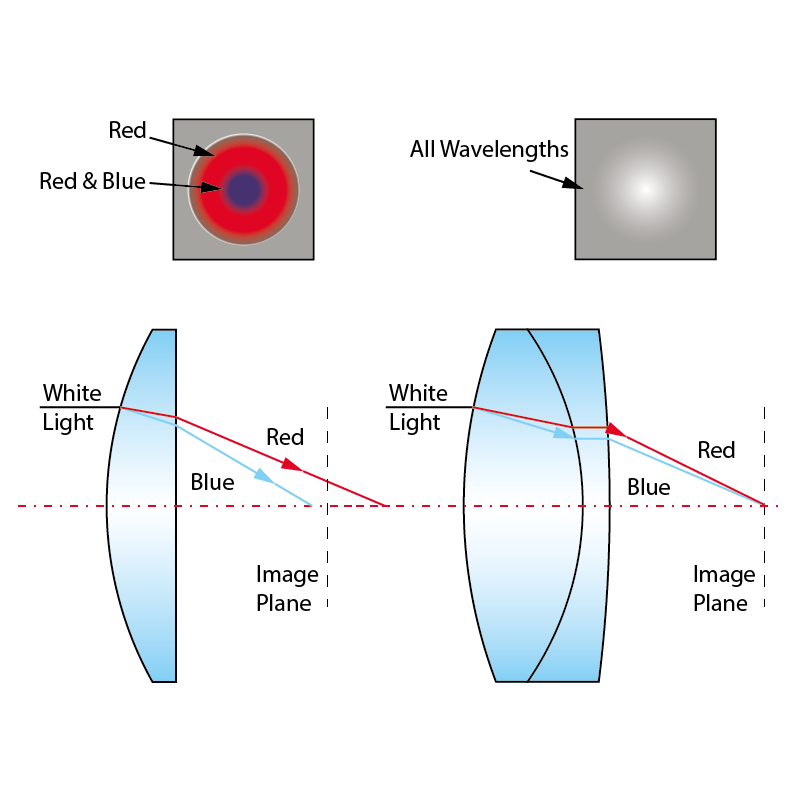EFL=108mm , Cemented Achromatic Doublets (ACD)
EFL=108mm , Cemented Achromatic Doublets (ACD)
Couldn't load pickup availability
EFL = 108mm
Specification1:
AR Coating = MGF2@530nm
Material = H-ZF1&H-LAF53
R1 , R2 , R3 = -15.075mm, -115.33mm, 26.993mm
Tc1 , Tc2 = 7.91mm , 1.41mm
Specification2:
AR Coating = R<1% @400-700 & R<0.7% @480-520nm
Material = H-LAF53&H-FK61
R1 , R2 , R3 = -38.9mm, -113.8mm, 50.8mm
Tc1 , Tc2 = 19.9mm , 10mm
Specification3:
AR Coating = Ravg<0.5 @440-700nm
Material = H-BAK8&H-ZF13
R1 , R2 , R3 = 76.37mm, 64.573mm, 152.917mm
Tc1 , Tc2 = 8mm , 5mm
SKU:
Common Specification
Common Specification
Legend
Legend
- Dia. = Diameter
- R = Radius of Curvature
- ET = Edge Thickness
- EFL = Effective Focal Length
- CT = Center Thickness
- P = Principle Point
- BFL = Back Focal Length


Benefit of Achromatic Doublets
An achromatic lens is far superior to a simple lens for multi-color "white light" imaging. The two elements composing an achromatic lens (literally, "a lens with no color") are paired together for their ability to correct the color separation inherent in glass. Having eliminated the problematic chromatic aberrations, an achromatic lens becomes the most cost-efficient means for good polychromatic illumination and imaging. Refer to Figure 8 for an illustration of this concept.

